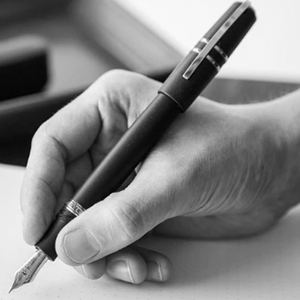Time and money are two things in the experience economy and people want to spend their hard-earned money and hard-earned time on experiences, experiences they perceive as authentic. (from What Consumers Want, by Joseph Pine).
Modern consumer culture
In his TEDx talk Joseph Pine essentially discusses the shift in modern consumer culture from a goods-based economy to an experience-based economy. He claims that companies are now trying to sell authentic experiences to their customers—the one problem with this authenticity is, it isn’t real. Pine believes that we cannot have the authentic experience we so desperately want, because literally everything about our consumer-based society destroys the possibility of authenticity.
Experience-based economy
In the last three decades services are starting to be customized. The one marketing question was: “What will happen when you design a service that is so appropriate for a particular person—that’s exactly what they need at this moment in time? Then you can’t help but make them go WOW, you can’t help but turn it into a memorable event. You can’t help but turn it into an experience”. As a result, we’re shifting into an experience-based economy
Authenticity
Authenticity is becoming the new consumer sensibility. Time and money are the two things in the experience economy. As well as goods and services became commodities, people want to spend their hard-earned money and hard-earned time on experiences. experiences they perceive as authentic.
Customers desire an authentic experience with price in mind. For a business to be authentic, they need to stay true to themselves, with the examples of Disney, the dance events and the exchange markets proving this. In order for a business to provide an authentic service and be authentic, they need not to state that they are authentic unless they truly are. The number one thing to do, when it comes to being what you say you are, is to provide places for people to experience who you are.
Authentic experiences
- There is no such thing as an inauthentic experience. Why? Because the experience happens inside of us. It’s our reaction to the events that are staged in front of us;
- As long as we are in any sense authentic human beings, then every experience we have, is authentic;
- Everyone has this desire for the authentic. And authenticity is therefore becoming the new consumer sensibility. It is the buying criteria by which consumers are choosing who they are going to buy from, and what they’re going to buy;
- With the experience economy, it’s about rendering authenticity. The keyword is rendering, because you have to get your consumers – as business people – to perceive your offerings as authentic;
- But there is a basic paradox. One can have an inauthentic experience, but no business can supply one. Because all businesses are man-made objects, all business is involved with money, all business is a matter of using machinery. And all those things make something inauthentic.
Dimensions of authenticity
There are in principle two dimensions to authenticity:
- Self-directed, or being true to oneself
- Other-directed, or being what you say you are to others
The easiest way not to be true to yourself is not to understand your very heritage, and thereby repudiate that heritage. Knowing your heritage is what you have done in the past. And what you have done in the past limits what you can do, what you can get away with, essentially, in the future. So you have to understand the past.
On the Art world
Even though Joseph Pine is talking about economics, the conclusion he makes – that authenticity is in fact a product of our society’s rejection of innovation – holds water when it comes to the art world as well.
The art world has been focused, for such a long time, on holding true to the past, on being authentic to what came before. When in reality, all that an artist needs to do to be authentic, per se, is “to thine own self be true. And it doth follow, as night the day, that thou canst not then be false to any man”. Polonius, in all his spuriousness, seems to get to the heart of what it means to be authentic…


